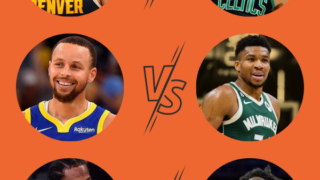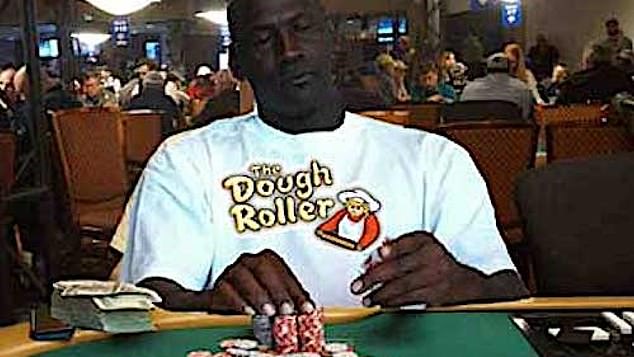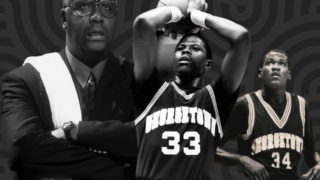The history of betting on the NBA is a tale that intertwines the evolution of sports gambling, the growth of the National Basketball Association, and the changing landscape of societal attitudes towards betting. From humble beginnings to the modern, multimillion-dollar industry it is today, the journey of NBA betting is a fascinating exploration of the intersection between sports and wagering.
Early Days and Informal Wagering: 1946-1970s
When the NBA was founded in 1946, sports betting was far from the sophisticated industry it is today. In the early days, informal wagering among friends and fans characterized the landscape. Bettors would engage in friendly bets or participate in small-scale pools, often confined to local communities and barrooms. The lack of a national framework for sports betting meant that the activity remained largely localized and unregulated.
Growth and Popularity: 1980s-1990s
The 1980s and 1990s marked a significant shift in both the NBA and the betting landscape. The league’s popularity surged with the emergence of iconic players like Magic Johnson, Larry Bird, and Michael Jordan. As the NBA captured the hearts of fans globally, the appetite for betting on the games grew.
During this era, the advent of the internet revolutionized sports betting. Online sportsbooks began to emerge, providing a convenient platform for enthusiasts to place bets from the comfort of their homes. This accessibility, coupled with the rise of televised NBA games, fueled the expansion of the betting market. The NBA’s widespread appeal and the ease of placing bets contributed to the increasing integration of sports gambling into mainstream culture.
In the mid-1990s, Jordan suddenly retired from the NBA to pursue a career in professional baseball. That decision shocked sports fans and had significant repercussions for the NBA. Later, when it was revealed that Jordan would wager hundreds of thousands of dollars on golf and other sports, some speculated that the NBA legend was forced to leave the league for a period of time as a punishment for gambling indiscretions. There is no evidence that this was the case. Jordan returned after a nearly two year absence, and won three additional NBA titles with the Chicago Bulls.
Controversies and Scandals: 2000s
The 2000s brought both excitement and controversy to the world of NBA betting. One of the most infamous incidents was the Tim Donaghy scandal in 2007. Donaghy, a former NBA referee, was found to have placed bets on games he officiated, including those involving teams he could influence through his decisions on the court. The scandal shook the league and raised questions about the integrity of sports betting and its potential impact on the outcomes of games.
In response to the Donaghy scandal, the NBA and other professional sports leagues began to reassess their stance on sports betting. The league took steps to enhance transparency and worked towards establishing a regulated framework for sports gambling to ensure the integrity of the game. This period prompted a broader conversation about the relationship between sports leagues and the gambling industry, leading to a gradual shift in attitudes towards legalization.
Legalization and Modern Era: 2010s-Present
The 2018 Supreme Court decision in Murphy v. NCAA had a seismic impact on the sports betting landscape in the United States. The ruling declared the Professional and Amateur Sports Protection Act (PASPA) unconstitutional, opening the door for states to legalize and regulate sports betting.
In the wake of this decision, several states moved quickly to legalize sports betting, and the NBA actively embraced the changing landscape. The league recognized the potential benefits of legalized betting, including increased fan engagement and revenue opportunities. Partnerships between the NBA and sportsbook operators became more common, with the league advocating for integrity fees to ensure that sports organizations received a share of the betting revenue.
Today, numerous states have legalized sports betting, and fans can place bets on NBA games through licensed online sportsbooks and physical sportsbook locations. The proliferation of mobile betting apps has further streamlined the process, allowing fans to wager on games in real-time from their smartphones.
In-Game Betting and Technological Advancements
The modern era of NBA betting is characterized by the rise of in-game or live betting, enabled by technological advancements. With the advent of real-time data and high-speed internet, bettors can now place wagers on various aspects of a game while it is in progress. From predicting the next point scorer to wagering on quarter-by-quarter outcomes, in-game betting has added a new layer of excitement to the overall betting experience.
Technological innovations have also enhanced the overall user experience for bettors. Mobile apps offer user-friendly interfaces, live streaming of games, and real-time updates, making it easier for fans to stay engaged with both the NBA and their bets.
Future Trends in Basketball Betting
As the NBA continues to be a global sports phenomenon, and sports betting becomes more ingrained in mainstream culture, the future of NBA betting holds both promise and challenges. The expansion of legalized sports betting across states and countries presents opportunities for increased revenue and fan engagement. The NBA’s embrace of partnerships with sportsbook operators and data providers is likely to continue, further integrating the league with the betting industry.
However, challenges persist, including the need for robust regulations to protect the integrity of the games and prevent potential misconduct. Balancing the excitement of sports betting with responsible gambling practices is an ongoing concern, requiring collaboration between sports leagues, regulators, and operators.




